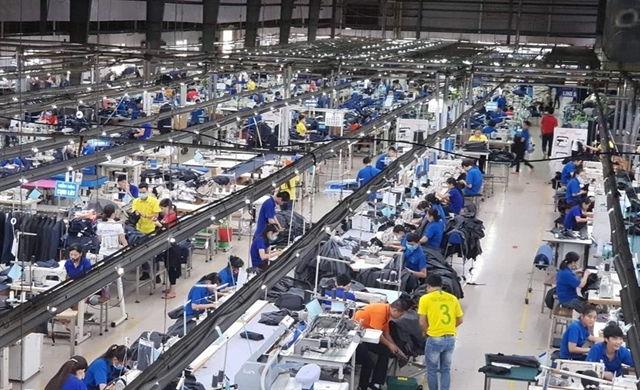The state needs to continue implementing the equitisation process and empowering private enterprises, an expert said.

The state needs to continue implementing the equitisation process and empowering private enterprises, an expert said.
“The equitisation process is still slow and faces many difficulties, but this should not be a hindrance to the process,” Phan Đức Hiếu, a standing member of the National Assembly's Economic Committee, said at a seminar earlier this week.
After equitisation, some enterprises have made profits, contributed to the budget, and created many jobs; they also attract investment from the private sector, says economist Nguyễn Minh Phong.
However, besides the results achieved, the process of restructuring state-owned enterprises still has many limitations, and the progress of equitisation remains slow. The role of state-owned economic groups and corporations that participate in large projects and works has not been well promoted. Capital management in enterprises with non-dominant state capital is difficult, especially in enterprises that are making losses, are subject to financial supervision, or have large shareholders who lack co-operation, said Phong.
“These are issues that have been mentioned repeatedly in National Assembly sessions but have not been dealt with specific solutions,” he said.
The Government needs to specifically evaluate existing legal problems, find ways to avoid losses of state capital, especially measures related to determining the value of land use rights, fixed assets, brands, and traditional values of equitised enterprises, he said.
The speakers also said that there were problems with the law and law enforcement. At the same time, information provided by state-owned enterprises was inconsistent, thus failing to create confidence for investors, along with legal issues about land, ownership of intangible assets, and financial reports.
Sharing the same opinion, Hiếu said that along with legal transparency, perfecting mechanisms and policies on land planning and auctions was necessary.
The Government also needs to have a specific plan to use the capital obtained from divestment, with priority given to important national projects to create development momentum and spillover power for the economy; and promote the role of the State Capital Management Committee at enterprises.
In 2021, four enterprises were equitised with a total enterprise value of VNĐ333 billion, of which the actual value of State capital was VNĐ196 billion. In 2022, one additional state-owned enterprise was equitised with a total enterprise value of VNĐ309 billion, of which the actual value of state capital was VNĐ278 billion.
In the first nine months of 2023, the units continued to implement equitisation work according to the approved plan.
Regarding divestment, in 2021, the State divested capital from 18 enterprises, earning VNĐ4.4 trillion. In 2022, the state divested capital from one enterprise, earning VNĐ390 billion. State-owned corporations and enterprises divested capital from 31 enterprises with a value of VNĐ688.7 billion, earning VNĐ3.9 trillion.
In the first nine months of 2023, the State divested capital in 4 enterprises, earning VNĐ19 billion. State-owned corporations and enterprises divested capital from 7 enterprises, earning VNĐ206.3 billion.
According to a report from the Department of Corporate Finance under the Ministry of Finance, the total expected revenue from selling State capital in the 2021-2025 period is VNĐ21.8 trillion. — VNS





